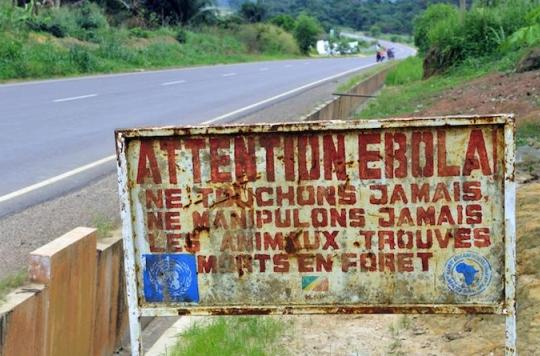A new study on Favipiravir, a Japanese antiviral used against influenza, proves the effectiveness of this treatment against the Ebola virus. But the treatment, tested on primates, must be administered in high doses. Explanations.

The virus Ebola has been less talked about since its outbreak between 2014 and 2016. More than 11,000 people died in West Africa during this period.
Although vaccines have been updated, no effective treatment has been validated to date. Recently, researchers have shown the effectiveness of a Japanese antiviral, Favipiravir, used against influenza. Tested at low doses in humans, it had cut the death rate in half. A new study, led by French researchers from Inserm (National Institute of Health and Medical Research), once again proves the effectiveness of Favipiravir, but on one condition: it must be administered in high doses. The results are published in the journal PLOS Medicine.
Jeremie Guedj & al. investigate the efficacy of high doses of #favipiravir in a primate model of #Ebola virus infection. https://t.co/DHAtpojuZA pic.twitter.com/IOTtRH625M
– PLOS Medicine (@PLOSMedicine) March 28, 2018
Compare the effectiveness of treatment by dose
To conduct this study, Inserm researchers infected 26 primates with a strain of the Ebola virus and then followed them for 21 days. Half of them received treatment, the other half did not. Those receiving Favipiravir were treated two days before infection, up to two doses per day. Three subgroups were treated with a different dose of Favipiravir: 100 mg per kg, 150 mg per kg and 180 mg per kg.
Higher chance of survival at high dose
The results of the trial are as follows: All animals that were not treated or received the lowest dose of Favipiravir died within ten days of infection. Two out of 5 primates (40%) who received 150 mg per kg of Favipiravir were still alive after 21 days. The survival rate was better with the administration of the highest dose (180 mg per kg): 3 out of 5 animals survived (60%).
Adapt to humans
If these conclusions are encouraging, it is still necessary to adapt the dosage to humans, because the dose administered to these primates would be fatal for them. In addition, treatment was started before the infection. However, if a person is infected with the Ebola virus, treatment begins after the onset of symptoms (fatigue, muscle pain, vomiting, diarrhea or even internal or external bleeding). In this case, the sick person is already contagious.
.

















